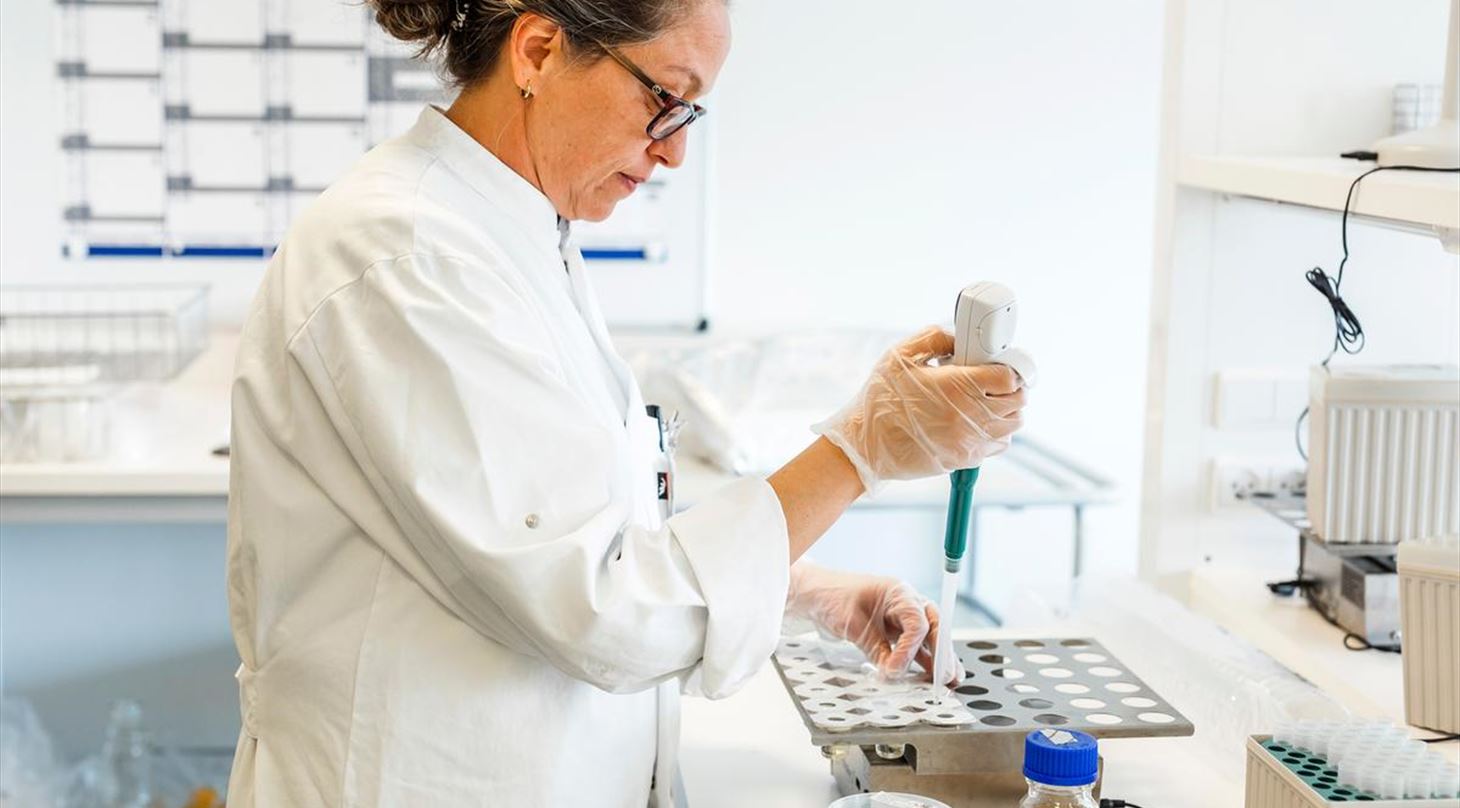
Microbiological analyses
The microbiology laboratory at Danish Technological Institute is an independent laboratory accredited by DANAK according to DS/EN ISO/IEC 17025. Our laboratory has many years of experience in the analysis of microorganisms in food and non-food products and production environments.
We perform a limited number of accredited analyses, but our strength lies in our ability to work directly with customers to plan and execute non-standard testing that may not be available at regular contract laboratories. We work with both classical microbiology methods and more advances molecular methods.
Accredited analyses
We offer:
- Planning for and guidance in best practices for sampling or direct assistance with carrying out the sampling for the company
- Analyses for the presence of a wide range of bacteria, viruses, yeasts, and mould in food and non-food products and the production environment
- Consultancy and help in interpreting the result of a microbiological analysis
We perform the following accredited analyses for documentation:
- Aerobic plate count at 30°C, 20°C, and 6.5°C (NMKL 86, 2013)
- Enterobacteriaceae (NMKL 144, 2005)
- E. coli (NordVal 014, AOAC)
We deliver:
- A test report with clear and unambiguous analysis results
- Interpretations and other information relevant to the analysis/sample.
What can the Danish Technological Institute help you with?
Microorganisms are a challenge in food production. Center for Food Safety & Quality at Danish Technological Institute has many years of experience in advising the food industry on microbiological challenges. Our competences are wide, and some examples are listed below:
- Documenting that pathogenic bacteria are kept in check is necessary – and a regulatory requirement
- Targeted choice of preservation to optimize shelf life
- Improve microbial shelf life to minimize customer complaints due to spoilage
- Documentation of microbiological safety and shelf life when developing new recipes
- Standard plate counts e.g., aerobic bacteria, E. coli, Enterobacteriaceae, yeasts and moulds
- Investigation of microaerophilic and anaerobic microorganisms e.g. lactic acid bacteria and clostridia
- Detection of pathogenic bacteria e.g. Salmonella, Listeria monocytogenes, Yersinia enterocolitica and Campylobacter
- Effect of starter cultures in meat products
- Tracking contamination by bacterial DNA typing
- Advice on rapid microbial methods versus reference methods
- Help streamlining laboratory operations in the customer's laboratory
- Assistance in preparing for accreditation of the customer's laboratory
Do not hesitate to contact us for a chat to see if we can help.
Links